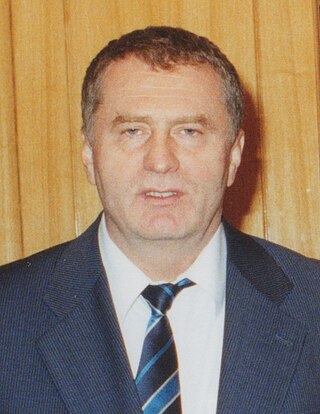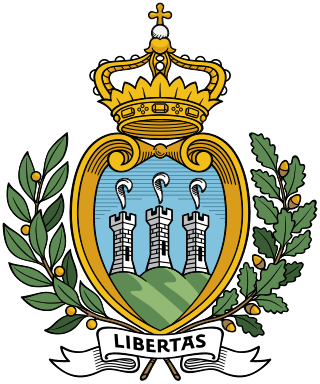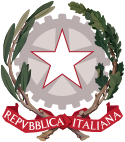
Electoral reform in New Zealand has been a political issue in the past as major changes have been made to both parliamentary and local government electoral systems.

Bulgaria elects on the national level a head of state—the president—and a legislature. The president is elected for a five-year term directly by the people. The National Assembly has 240 members elected for a four-year term by proportional representation in multi-seat constituencies with a 4% threshold. Bulgaria has a multi-party system in which often no one party has a chance of gaining power alone and parties must work with each to form governments.
Particracy, also known as partitocracy, partitocrazia or partocracy, is a form of government in which the political parties are the primary basis of rule rather than citizens or individual politicians.

A referendum on maintaining the monarchy was held in Greece on 1 September 1946. The proposal was approved by 68.4% of voters with a turnout of 88.6%.

An abrogative referendum on the divorce law was held in Italy on 12 May 1974. Voters were asked whether they wanted to repeal a government law passed three years earlier allowing divorce for the first time in modern Italian history. Those voting "yes" wanted to outlaw divorce as had been the case before the law came into effect, and those voting "no" wanted to retain the law and their newly gained right to divorce. The referendum was defeated by a margin of 59.26% to 40.74% on a voter turnout of 87.72% out of 37 million eligible voters, thus allowing the divorce law to remain in force.

The 1958 Italian general election was held in Italy on 25 May 1958. The number of MPs to be elected was calculated upon the population's size for the last time.

The 1976 Italian general election was held in Italy on 20 June 1976. It was the first election after the voting age was lowered to 18.

The 1992 Italian general election was held on 5 and 6 April 1992. They were the first without the traditionally second most important political force in Italian politics, the Italian Communist Party (PCI), which had been disbanded in 1991. Most of its members split between the more democratic socialist-oriented Democratic Party of the Left (PDS), while a minority who did not want to renounce the communist tradition became the Communist Refoundation Party (PRC); between them, they gained around 4% less than what the already declining PCI had obtained in the 1987 Italian general election, despite PRC absorbing the disbanded Proletarian Democracy (DP).

Parliamentary elections were held in Russia on 12 December 1993. They were the first parliamentary elections in post-Soviet Russia and the only time to the Federation Council, with future members appointed by provincial legislatures and governors.

A referendum on the order law was held in Luxembourg on 6 June 1937. Voters were asked whether they approved of the new law, which would have banned any political party that sought to change the constitution or national legislation by violence or threats. The law would have resulted in the dissolution of the Communist Party, and became known as the Maulkuerfgesetz.

A snap election was held in Italy on 13–14 April 2008. The election came after President Giorgio Napolitano dissolved the Italian Parliament on 6 February 2008, following the defeat of the government of Prime Minister Romano Prodi in a January 2008 Senate vote of confidence and the unsuccessful tentative appointment of Franco Marini with the aim to change the current electoral law. Under Italian law, elections must be held within 70 days of the dissolution. The voting determined the leader of Italy's 62nd government since the end of World War II. The coalition led by ex-Prime Minister Silvio Berlusconi from The People of Freedom party defeated that of former Mayor of Rome, Walter Veltroni of the Democratic Party.

Parliamentary elections were held in Lithuania in two stages on 25 October and 15 November 1992. A total of 141 members were elected to the Seimas, which replaced the Supreme Council; 70 were elected using proportional representation and 71 from single-member constituencies. Where no candidate in the single-member constituecies received more than 50% of the vote on 25 October, a run-off was held on 15 November. The first round of the elections were held simultaneously with a referendum on the adoption of a new constitution.

Parliamentary elections were held in Lithuania in two stages on 20 October and 10 November 1996. All 141 seats in the Seimas were up for election; 70 based on proportional party lists and 71 in single member constituencies. Where no candidate gained more than 50% of the vote on 20 October, a run-off was held on 10 November.

A five-part referendum was held in Italy on 17 and 18 May 1981. The proposals included repealing laws on public order, life sentences, gun licences, and abortion. All were rejected by voters, with no proposal receiving more than 32% of the vote.

General elections were held in Italy on 27 January 1861, with a second round on 3 February. The newly elected Parliament first convened in Turin on 4 March 1861, where, thirteen days later, it declared the unification of the country as the Kingdom of Italy.
General elections were held in Italy on 29 October 1882, with a second round of voting on 5 November. The "ministerial" left-wing bloc emerged as the largest in Parliament, winning 289 of the 508 seats.

A referendum on the electoral law was held in San Marino on 22 September 1996. Voters were asked four questions on changes to the electoral law and electoral system, all of which were approved by voters.

A referendum on the electoral law was held in San Marino on 3 July 2005. Voters were asked four questions on changes to the electoral law and electoral system. Although all four were approved by a majority of those voting, voter turnout was just 21.7%, meaning that the quorum of 32% of registered voters (10,143) was not achieved for any question. This resulted in all four questions failing, including two that proposed raising the quorum to 40%.
Five referendums were held in Switzerland during 1920. The first three were held on 21 March on a federal law on regulating employment contracts, a ban on creating gambling establishments and a counterproposal to the ban. The fourth was held on 16 May on membership the League of Nations, whilst the fifth was held on 31 October on a federal law on working times on railways and other transport services. Of the five, only the ban on gambling establishments, League of Nations membership and the law on working times were passed.
Parliamentary elections were held in Iceland on 10 September 1908, alongside a referendum on prohibition.














